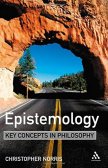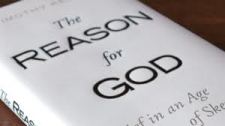Book Discussion of Christopher Norris’ “Epistemology: Key Concepts in Philosophy”
Chapter 3: ‘Fog Over Channel, Continent Isolated’: Epistemology in the ‘Two Traditions’ – Section II.
Part 2: Koyré (Norris does not split the section into parts.)
Alexandre Koyré also transcends the rift between the analytic and continental traditions. “Best known as a philosopher-historian of early modern science,” he was a Russian exile who went from Germany to France and taught in both the U.S. and France after WWII. His “intense speculative bent and vast range of interests (in mathematics, physics, cosmology, philosophy, theology and various traditions of Neo-Platonic and mystical thought) place his work far apart from mainstream approaches to the subject.”
In common with Duhem:
1. “rejected the conventional view that genuine scientific knowledge got started only with the passage from ‘medieval’ to ‘renaissance’ modes of thought, that is, through a decisive enabling break with the legacy of hidebound scholastic doctrine which prevailed in the earlier period.”
2. “shared Duhem’s great aim of reawakening philosophers to the range and vitality of medieval thought, while stressing just the opposite (realist) aspects of what he took to constitute its chief and enduring legacy.”
Koyré was a realist (opposed to instrumentalist thinking like that of Duhem) because:
1. Believed “science could deliver objective knowledge of a mind-independent physical reality…” (as did some medieval thinkers)
2. which consists of “objects, properties and causal powers whose essential nature was such as to determine whether or not scientific enquiry was on the right track,” (as did Aristotle).
3. Espoused “a basically Platonist outlook which aspired to transcend the epistemic contingencies of scientific knowledge at this or that state in its advancement to date.”
Koyré’s work [including Etudes galileennes (1939)] is characterized by:
1. “originality of mind…expansive vision of philosophy of science as a quest for universal yet historically emergent and culturally salient truths.”
2. “detailed and exacting analysis of scientific theories-…theories of movement, stasis and inertial force-while drawing out the kinds of problem and paradox that have preoccupied philosophers from Zeno to the present.”
3. “treats these issues within a larger metaphysical framework that takes them to involve fundamental questions such as those first broached by the conflicting claims of Platonic and Aristotelian ontologies.”
4. Preference for Plato seen “above all in Koyré’s realist philosophy of mathematics; antipathy toward empiricist conception of scientific method.”
He was influenced by Husserl‘s transcendental phenomenology (very often dissenting from it)-and took from Husserl “the idea of philosophy as a rigorous, reflective, self-critical activity of thought which suspended (or bracketed) our commonsense beliefs and thereby sought to reveal the underlying, a priori, and hence universally valid structures of knowledge and experience.” Like Husserl, he went back and forth between this and acknowledging the task’s dependence “on modes of intuitive self-evidence…being-in-the-world as historically and culturally situated agents.” He criticized “the strain of transcendental idealism” in Husserl’s Cartesian Meditations, which he felt fell away from “the vocation of rigorous, scientifically disciplined enquiry.” Had recourse to “the evidence of modern (post-Galilean) scientific thought but also to the Thomist theological tradition which likewise-albeit for different reasons-rejected any notion of human knowledge (even at the limit of idealized rational acceptability) as the ultimate arbiter of truth.” [At the same time he claimed “that modern science had by no means shed its ‘metaphysical’ commitments-as argued by hard-line positivists-but on the contrary continued to enlist such resources so as it render its truth-claims and its theories intelligible.”] “No philosopher in recent times has done more to uphold the claims of scientific rationality and truth while taking on board such a range of arguments from (seemingly) opposed viewpoints. Thus his critique of positivism for its anti-metaphysical prejudice went along with his equally trenchant critique of those idealist-‘metaphysical’-currents of thought which paid insufficient regard to the manifest achievements of physical science.”
This explains his impact “during that period of pre-war French intellectual debate when thinkers like Sartre were attempting a synthesis of Husserlian transcendental with Heideggerian existentialist phenomenology, and these in turn with an understanding of Hegel mediated by Kojeve’s strong-revisionist reading.” Koyré had a good historical grasp of the sources of the debate.
Koyré “made no sharp distinction between the sorts of theological issue (such as realism versus nominalism) that had so preoccupied medieval thinkers and the sorts ofmetaphysical issue that continued to emerge with undiminished force when science took its turn toward a broadly secularized worldview.” This is due to his attraction to Levy-Bruhl’s thought (collective mind-sets) and “nineteenth-century hermeneutic philosophy” [like Wilhelm Dilthey’s ‘worldviews’ or Weltanschauungen] both of which gave him the “sense of the problems involved in negotiating differences of cultural outlook or deep-laid metaphysical commitment.” Yet-he didn’t go the way of Michel Foucault‘s skeptical nominalism, treating all knowledge as cultural construct, relative to period of discourse. Nor was he ever a paradigm-relativist like Kuhn. Koyré believed “science is indeed a continuing venture of discovery and that differences of mind-set-however profound-can nonetheless be rendered intelligible from a sufficiently informed historico-philosophical viewpoint.” It was his (realist) conviction that “scientific knowledge was properly aimed toward discovering the essence of things rather than contenting itself with merely nominal definitions.” Totally clashed with anti-metaphysical positivism.
So he went outside the box a bit-“Renaissance hermetic philosophies (Paracelsus), Romantic mysticism (Boehme) and various nineteenth-century Russian proto-existentialist ideas-all of which he sought to bring within the compass of a unified history of thought. …his chief motive was to vindicate the claims of mathematics and the physical sciences as aimed toward a truth which transcended the socio-cultural vicissitudes of time and place.” -one indicator being the diverse thinkers he chose to study under…. “while nonetheless respecting those essential standards-of truth, objectivity and conceptual rigor-that characterized mathematics and the physical sciences.” In the ‘science wars’ or ‘culture wars’ debate, composed of hard-line scientific realism, cultural-relativism/social-constructivism, Koyré “held out…the prospect of achieving a perspective atop these particular kinds of academic or interdisciplinary dispute…points a way forward from some of the more sterile or deadlocked disputes in recent epistemology and philosophy of science.”These things keep popping up (not just in Norris’ book) and I would eventually like to explore them at more depth (hopefully Norris does this)–
Nominalism: http://en.wikipedia.org/wiki/Nominalism
Problem of universals: http://en.wikipedia.org/wiki/Problem_of_universals
Apparently realism is non-nominalism-believes in universals. I’m wondering if the section on descriptivism/naming had anything to do with it? I’m hoping not…I’m thinking not.
*****
a synthesis of Husserlian transcendental with Heideggerian existentialist phenomenology, and these in turn with an understanding of Hegel mediated by Kojeve’s strong-revisionist reading
–would love to know the ins and outs of that









